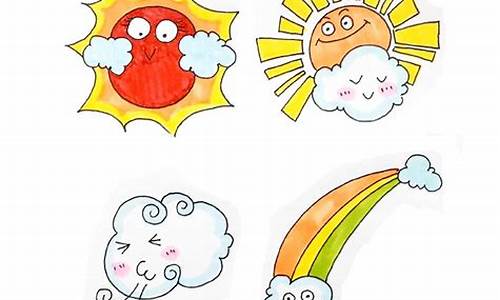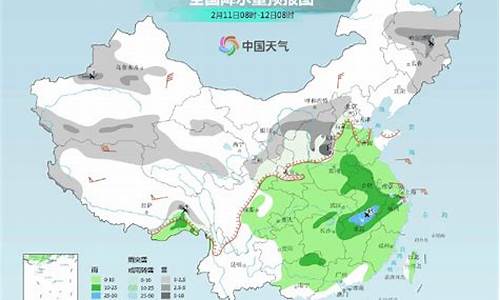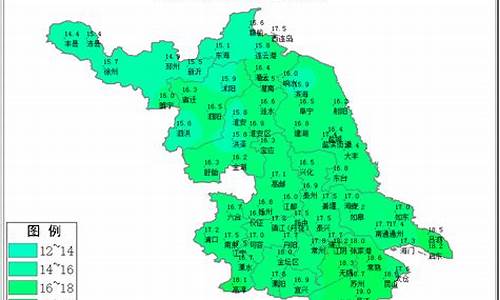你为什么谎报天气英语_你为什么知道天气预报
1.为什么how bad weather不对?
2.向别人询问天气时应该用英语怎么说
3.旅游时天气问题的英语作文
4.关于天气的英语作文

天气:
A: Hei, Ann, long time no see. How's everything、
B: Hi John. Not bad. How are you today?
A: Fine, thanks. Where are you going?
B: I'm going to library to return some books.
A: I see, by the way, remember to take your umbrella with you. Weather recetly is quite strange.
B: Yes, thank you. I have taken it. I heard that it's going to snow heavy tonight.
A: Oh, God, Then it will be quite freezing.
B: Yes, Probably, take care.
假期:
A: Chiristmas is approaching. Do you have any plan for that?
B: Not yet, how about you?
A: I am going to visit my grandparents together with my parents.
B: That's a good idea. I believe that would be a nice gethering.
A: Yes, it will. I heard that you were planning to go skiing?
B: Yes, but some of my friends cancelled their schedule, so I am considering to go or not.
A: Oh, sorry to hear that. It would be fun cause we had such heavy snow last week.
B: Yes, maybe I will go by myself.
打电话
A: Hello, This is Jenny speaking.
B: Hei, May I speak to Frank?
A: Sorry, Frank is not in right now. May I have your name, please?
B: This is Martin, when will Frank be back?
A: I am not sure, but I could take a message for you if you like.
B: Yes, please. I want to discuss with him for the concert tonight, can you ask him to call back when he's in?
A: Yes, no problem.
B: Thank you.
为什么how bad weather不对?
托福口语更能体现一个能是否真的很了解英语,学好英语,那么下面和我一起来看看托福口语对话之生病请假。希望能给大家一些帮助。
1.惯用口语句子:
Jenny called in sick just now.
珍妮刚才打电话请病假了。
She rang/phoned in sick.
她打电话请病假了。
call/ring/phone in sick“打电话请病假”
I'm sick.
= I feel sick/ill.
我生病了。
I don't feel well.
我感觉不舒服,
l don't feel quite right/well.
我感觉不太舒服。
I feel awful/terrible.
我感觉非常难受。
I'm afraid I can't come today.
恐怕我今天来不了了。
I'm not coming to work.
我不来上班了:
I've got a bad cold.
我得了重感冒。
I have a headache.
我头疼。
I My head is killing me.
我头疼死了。
I'd like to ask for sick leave.
其想请假。
I'd like to ask for leave.我想请假。
leave n. 请假,休假 v. 离开
I'd like to take some time off.
我想休一段时间的假。
I was wondering if I could take this afternoon off.
我在想今天下午是否能请个假。
I need to take a day off.
我想请一天假。
I need a day off.
我想请一天假。
I need a vacation.
我需要休假。
I need some rest.
我需要休息,
vacation n. 假期,休假
“请…时间的假”
Can I take two days' leave?
我能请两天假吗?
I'd like to take my leave from next Monday on.
我想从下周一开始请假。
I'd like to apply/ask for three days' leave.
我想申请休三天假。
apply for“申请”
I'd like to put in for one hour's leave.
我想请一个小时的假。
put in for“正式申请”
I was wondering if you could give me leave of absence to attend a computer course.
我想请假上计算机课,不知道您准不准假?
absence n. 不在,缺席
I want to take parental leave to look after my baby.
我想休育婴假回家照顾我的宝宝。
parental a. 父母亲的
parental leave“育婴假”
I've brought a proper sick note.
= I've brought a proper excuse.
我带来一张生病证明。
proper a. 适当的,正确的
“生病证明”的英式说浩为“sick note”,美式说法为“excuse”。
I come here to send in an excuse.
= I come here to send in a sick note.
我来递交生病证明。
Mr. Smith will be in charge during my absence.
我不在的时候,史密斯先生会负责。
He'll be in charge of this while I'm away.
我不在时他会负责这个。
in charge“处于领导、负责或管理的职位”(副词短语)
in charge of“负责,管理”(介词短语)
2.实用对话
Asking for Some Time Off请假
Samantha: ?Mr. Black, I'd like to take some time off. I've been feeling exhausted these days.
萨曼莎:布莱克先生,我想请假。我这些天感觉太累了。
Mr. Black: ?That's no problem. Let me see... You still have io days of annual leave left. Is that right?
布莱克先生:没问题。我来看一下…你还有10天年假没休。对吗?
Samantha: ?Yes. I was wondering if I could take another two weeks off.
萨曼莎:对。我在想能否再多请两周的假。
Mr. Black: ?That's long leave. How's your project coming along?
布莱克先生:这个假可够长的了。那你的项目进行得怎么样了?
Samantha: The project I'm in charge of now will be done by the end of this week. I'd like to take my leave from next Monday on.
萨曼莎:我现在负责的这个项目到这周结束就能做完。我想从下周一开始休假。
Mr. Black: Well, alright. but you make sure to tie up any loose ends before you leave.
布莱克先生:嗯,那好吧,但是你一定要在走之前把那些细枝末节的结尾工作都弄完。
Samantha: ?Thank you, Mr. Black. There are no immediate projects coming up at the moment. Mr. Smith will be in charge during
my absence. He's taken part in several projects as my assistant and knows how to maintain
relationships with our clients.
萨曼莎:谢谢您,布莱克先生。目前不会立即有什么新项目。我不在的时候,史密斯先生会负责。他以我助理的身份,也跟着我做了几个项目了,他知道怎样同客户维系关系。
Mr. Black: Great. I hope you have a good relaxation and come back refreshed.
布莱克先生:很好。我希望你好好休息放松,回来工作的时候精神焕发。
Samantha: ?I will. Many thanks, Mr. Black.
萨曼莎:我会的。非常感谢您,布莱克先生。
3.详细解说
1.“take time off"的意思是“休假,请假”,与“take leave”意思相近。
2.“I was wondering if/whether...”常译为“我在想能不能…”或“我不知道能不能…”,为礼貌用语,常用于请求别人给予帮助时。
3.“tie up loose ends”表示“解决尚待处理的细枝末节问题(以完成一项工作)”,例如: ?I need to tie up a few loose ends before
I go on vacation.(我去度假之前需要处理一些小事情。)其中“tie up“意为“系好”,“end”表示“末端”。
4.文化洗礼
看看美国人怎么“请假”
假如一个美国人某天不想去上班,他该怎么办?请病假似乎是个不错的选择。最新的调查发现,大约三分之一的美国上班族在过去一年中曾因“编瞎话”而请假成功。大约10%的美国雇员曾至少三次谎称自己“病了”。
研究人员透露,美国人谎报病假的三个直接原因分别是:要去处理个人私事、想多睡个懒觉和需要轻松一下。其他常见的原因还包括要去参加小孩的活动、天气不好、与朋友有约和面试其他工作等等。调查发现,春天和冬天这两个感冒和过敏性疾病高发的季节,往往就是大家最“热衷”请病假的日子。一般来说,由于涉及个人隐私,美国老板并不会过分追查下属的“病情”。
除了谎称自己因生病而不能上班外,本次调查还发现了很多稀奇古怪的请假理由。比如,当事人会宣称:自己不幸被臭鼬喷了一身难闻的气味、被家里的狗绊倒结果昏迷不醒、汽车抛锚又遇上了劫匪、被警察当成贼给拘留了、鞋子不见了、打保龄球时受伤了、老婆开车把别人家的牛撞死了、被杀手追击、卷发器坏了所以要上美容院烫头、家里的猫把闹钟弄坏了、要顶替丈夫去法院做陪审员、家里养的宠物猴死了、要把祖母的骨灰寄到其他国家安葬、忘记今天是星期一了、昨晚被人在饮料中下药了、大树被风副倒砸坏了汽车,等等等等。据说,很多人在搬出上述奇特的理由后,一般都能请假成功。
向别人询问天气时应该用英语怎么说
为你解答。
How(改为What) bad weather!
多糟的天气啊!
解释:感叹词How用于强调的中心词是形容词或副词,what则用于强调名词。这个感叹句的中心词是不可数名词weather,而不是形容词bad。所以用how不对。
旅游时天气问题的英语作文
英语中问天气的句子有:?
1、How is the weather? 天气怎么样?
2、What's the weather like today? 今天天气怎么样?
weather 读法 英?['we?]?美?['w]?
1、n. 天气;气象;气候;处境
2、vt. 经受住;使风化;侵蚀;使受风吹雨打
3、vi. 风化;受侵蚀;经受风雨
4、adj. 露天的;迎风的
短语:
1、warm weather?温暖的天气;温暖的气候
2、weather report?天气预报,天气报告;气象报告
3、weather resistance?耐气候性;耐风化性
4、severe weather?恶劣天气;风雨交加的天气;剧烈天气
5、weather station?气象站
扩展资料一、weather的词义辨析:
weather, climate的区别:
1、weather的意思是:一天内具体的天气状况
2、climate的意思是:长期的气候状况,例如:
The climate here is not good for you.
二、weather的近义词:climate?
climate 读法 英?[?kla?m?t]?美?[?kla?m?t]?
n. 气候;风气;思潮;风土
短语:
1、mild climate?温和的气候
2、dry climate?干燥气候
3、continental climate?大陆性气候
4、climate control?气候控制
5、temperate climate?温带气候
关于天气的英语作文
导语:随着旅游爱好者数量的日益增加,现今旅游问题也受到了人们更为广泛的关注。
Directions:
In this part, you are allowed 30 minutes to write a composition of no less than 150 words on The Increase in the Number of Chinese Traveling Abroad. Study the following chart carefully and case your composition on the information given in the chart.
1) State the changes in the number of Chinese traveling abroad in the past three years.
2) Give possible reasons for the changes.
参考范文:
With the rapid development of economy, the number of Chinese traveling abroad has increased enormously, which definitely benefits both China and the world.
In the past three years, the number of Chinese traveling abroad has kept a high growth rate. In accordance with the figures from a survey, there were about 7.5 million people traveling abroad in 1999. In the year after 1999, the number continued to rise. By 2000, it reached 10 million people. And the year 2001 saw an ever-growing number of 12.1 million people going abroad.
The reasons why the number of Chinese traveling abroad grows so rapidly are just as follows. First of all, after 20 years' reform and opening up to the world, our economy has developed very quickly. Now Chinese have more money in their pockets than before. They can do whatever they want. Moreover, with more spare money in their hands, many Chinese would like to better the quality of their lives by going out to see different people, to hear different ideas and experience different cultures. And traveling abroad is just one way on the list to meet their demands.
From the above analysis, we can easily draw the conclusion that such an increase in the number of people traveling abroad is reasonable and will continue to prove on a rise.
The weather is a set of all the phenomena in a given atmosphere at a given time. It also includes interactions with the hydrosphere. The term usually refers to the activity of these phenomena over short periods (hours or days), as opposed to the term climate, which refers to the average atmospheric conditions over longer periods of time. When used without qualification, "weather" is understood to be the weather of Earth.
Weather most often results from temperature differences from one place to another. On large scales, temperature differences occur because areas closer to the equator receive more energy per unit area from the Sun than do regions closer to the poles. On local scales, temperature differences can occur because different surfaces (such as oceans, forests, ice sheets, or man-made objects) have differing physical characteristics such as reflectivity, roughness, or moisture content.
Surface temperature differences in turn cause pressure differences. A hot surface heats the air above it and the air expands, lowering the air pressure. The resulting horizontal pressure gradient accelerates the air from high to low pressure, creating wind, and Earth's rotation then causes curvature of the flow via the Coriolis effect. The simple systems thus formed can then display emergent behaviour to produce more complex systems and thus other weather phenomena. Large scale examples include the Hadley cell while a smaller scale example would be coastal breezes.
The strong temperature contrast between polar and tropical air gives rise to the jet stream. Most weather systems in the mid-latitudes are caused by instabilities of the jet stream flow (see baroclinity). Weather systems in the tropics are caused by different processes, such as monsoons or organized thunderstorm systems.
Because the Earth's axis is tilted relative to its orbital plane, sunlight is incident at different angles at different times of the year. In June the Northern Hemisphere is tilted towards the sun, so at any given Northern Hemisphere latitude sunlight falls more directly on that spot than in December (see Effect of sun angle on climate). This effect causes seasons. Over thousands to hundreds of thousands of years, changes in Earth's orbital parameters affect the amount and distribution of solar energy received by the Earth and influence long-term climate (see Milankovitch cycles).
On Earth, common weather phenomena include such things as wind, cloud, rain, snow, fog and dust storms. Less common events include natural disasters such as tornadoes, hurricanes and ice storms. Almost all familiar weather phenomena occur in the troposphere (the lower part of the atmosphere). Weather does occur in the stratosphere and can affect weather lower down in the troposphere, but the exact mechanisms are poorly understood.[1]
The atmosphere is a chaotic system, so small changes to one part of the system can grow to have large effects on the system as a whole. This makes it difficult to accurately predict weather more than a few days in advance, though weather forecasters are continually working to extend this limit through the scientific study of weather, meteorology. It is theoretically impossible to make useful day-to-day predictions more than about two weeks ahead, imposing an upper limit to potential for improved prediction skill.[1] Chaos theory says that the slightest variation in the motion of the ground can grow with time. This idea is sometimes called the butterfly effect, from the idea that the motions caused by the flapping wings of a butterfly eventually could produce marked changes in the state of the atmosphere. Because of this sensitivity to small changes it will never be possible to make perfect forecasts, although there still is much potential for improvement.
The sun and oceans can also affect the weather of land. If the sun heats up ocean waters for a period of time, water can evaporate. Once evaporated into the air, the moisture can spread throughout nearby land, thus making it cooler.
这应该差不多了。
声明:本站所有文章资源内容,如无特殊说明或标注,均为采集网络资源。如若本站内容侵犯了原著者的合法权益,可联系本站删除。












